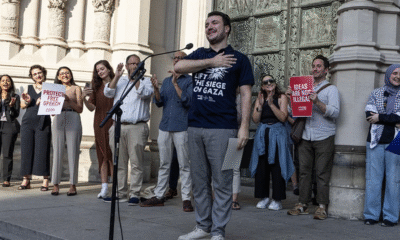Journalism
BBC in Crisis: Why Gary Lineker’s Exit Over Gaza Is Just the Tip of the Iceberg
As Gary Lineker signs off from his decades-long BBC career, his departure reveals a deeper, more pressing problem for Britain’s national broadcaster — one that reaches far beyond one celebrity presenter’s social media post. The BBC is now grappling with an existential crisis: how to uphold its commitment to impartiality in the midst of one of the most divisive global issues — the Israel-Gaza war.
Gary Lineker’s final controversy stemmed from an Instagram story he reposted, featuring an image of a rat superimposed over a definition of Zionism. Although he issued a swift apology, saying he hadn’t noticed the offensive imagery, the damage was done. But this wasn’t an isolated misstep. In truth, Lineker had been on a collision course with BBC policy ever since he criticized the UK government’s asylum plan in 2023, prompting the corporation to tighten its social media guidelines for flagship presenters.
The real crisis, however, is the BBC’s handling of the Gaza war and what critics describe as its hesitance to fully cover the humanitarian catastrophe unfolding in the region. The corporation has come under fire for indefinitely delaying the release of Gaza: How to Survive a Warzone after discovering the child narrator was related to a Hamas-run government member. Despite no evidence that the child’s relation influenced the documentary’s content, BBC leadership quickly removed the film from iPlayer and launched an internal review.
Insiders at the BBC report a chilling effect: fear of appearing “pro-Palestinian” has led to delays, cancellations, and reluctance to greenlight new content related to Gaza. For example, the powerful Medics Under Fire — a documentary detailing attacks on hospitals in Gaza and the deaths of over 100 doctors — remains shelved. Its producers have pleaded for the BBC to release the rights so it can be aired elsewhere, but the corporation refuses to act until its ongoing review is complete.
This lack of decisive action has prompted internal unrest. Staff surveys indicate declining confidence in leadership, with many journalists frustrated by what they see as political pressure and overcautious editorial management. Even acclaimed journalist Jeremy Bowen, using the word “genocide” — while quoting Palestinian sources — was seen as a rare act of bravery under the current climate.
New BBC Footage Captures Sound of Titan Sub Imploding as Shocking Details Emerge
Critics say the BBC’s fear of backlash and perception of bias are stifling its core mission: to inform the public truthfully, especially on matters of international importance. The irony is clear—in trying to preserve its reputation for impartiality, the BBC risks losing the very trust it’s seeking to protect.
Gary Lineker’s exit may have dominated headlines, but unresolved questions about the BBC’s courage in the face of controversy could define its legacy in the years to come. With Gaza’s suffering largely hidden from mainstream coverage, many are asking: If the BBC won’t tell these stories, who will?








































